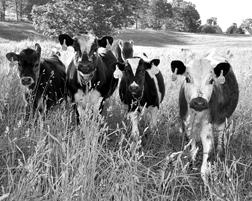

by Bethany M. Dunbar
WASHINGTON, D.C. — The U.S. House of Representatives has rejected the five-year farm bill, 234 to 195.
Congressman Peter Welch of Vermont was among the no votes.
Mr. Welch supported the bill as it was passed by the House Agriculture Committee, but in a telephone interview Tuesday he said he was among the Democrats who voted against the bill on the floor on Thursday, June 20.
An amendment supported by House Speaker John Boehner was just too drastic, he said. The speaker encouraged several changes, including stripping out a dairy insurance and supply management plan for farmers. Also, cuts to nutrition programs to help low-income families were severe, Mr. Welch said.
He said some Republicans wanted to drastically cut nutrition spending, and people who received help with food costs would be required to take drug tests and go into a work program.
“You had to go into a work program that didn’t exist,” Mr. Welch said.
States would also get financial benefits for getting people off the programs. In other words, the provisions were designed to get rid of nutrition programs, Mr. Welch said. He said he just couldn’t vote yes in good conscience. He hopes a new version of the bill will be developed.
“I’m more disappointed about the farm bill going down than just about anything I’ve done in Congress,” he said.
The House Agriculture Committee bill had bipartisan support, he said, and would have included cuts to food programs that were more severe than the Senate’s version. But Mr. Welch said he supported the committee bill because he was confident it could be repaired in a conference committee.
Asked what now, Congressman Welch said, “It’s really Mr. Boehner’s decision.” He added, “America needs a farm bill. It’s outrageous, basically, to give rural America the back of our hand.”
A letter Mr. Boehner wrote to his colleagues asks them to support an amendment called the Goodlatte/Scott amendment to cut dairy programs and get rid of supply management.
“Taxpayers have shelled out $5.44-billion for dairy programs since the 2002 Farm Bill (which I voted against),” says the letter.
Mr. Welch said the dairy program in the committee bill was a good plan, spearheaded by Vermont farmers. It would have gotten rid of subsidies, replacing them with a margin insurance plan and supply management.
The Senate version of the bill, as outlined by Senator Pat Leahy last year, reduced spending by more than $23-billion. Dairy farmers would have the option to buy margin insurance to protect their prices when the federal milk price drops below the cost of production. The supply management provision would discourage overproduction of milk by paying less if a farmer increases production at times when the price is down. The insurance would be available at a lower price for the first four million pounds of milk, about the annual production of 200 to 250 cows.
The U.S. Senate has passed a farm bill twice. After the no vote on Thursday, Senator Patrick Leahy issued a press release saying the House Republican leaders “trumped practicality with ideology, at the expense of farmers and consumers and millions of families who constantly struggle to keep hunger and malnutrition at bay.”
The farm bill covers dairy policy and nutrition programs. The Supplemental Nutrition Assistance Program (SNAP) is an $80-billion program. The House version of the farm bill would have cut it by $20-billion while the Senate version would have cut it by $4-billion.
In the past, the farm bill has also helped create jobs in rural areas through a program called the REAP zone. It has funded environmental protection programs. The Senate version of the bill included these provisions and others to help farmers get organic certification and to expand farmers markets.
Some of Mr. Welch’s priorities for the farm bill are disaster insurance for vegetable growers, promoting local fruits and vegetables in school lunches, and helping pay for efficiency improvements for maple sugarmakers, grants for maple research, and opening state lands to maple sugaring.
contact Bethany M. Dunbar at [email protected]
For more free articles from the Chronicle like this one, see our Editor’s Picks pages. For all the Chronicle’s stories, pick up a print copy or subscribe, either for print or digital editions.







